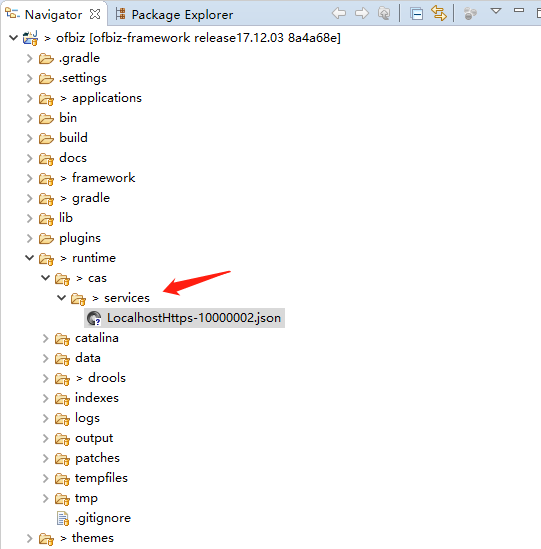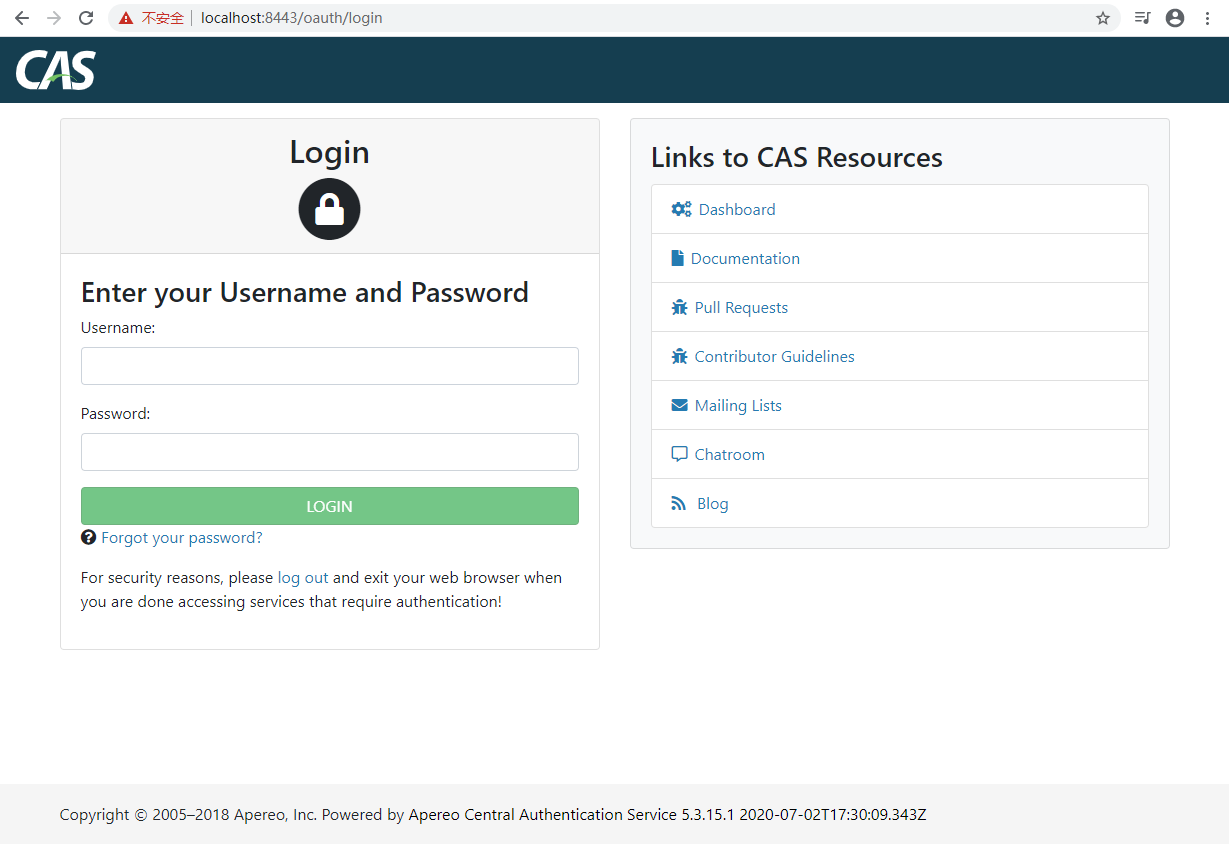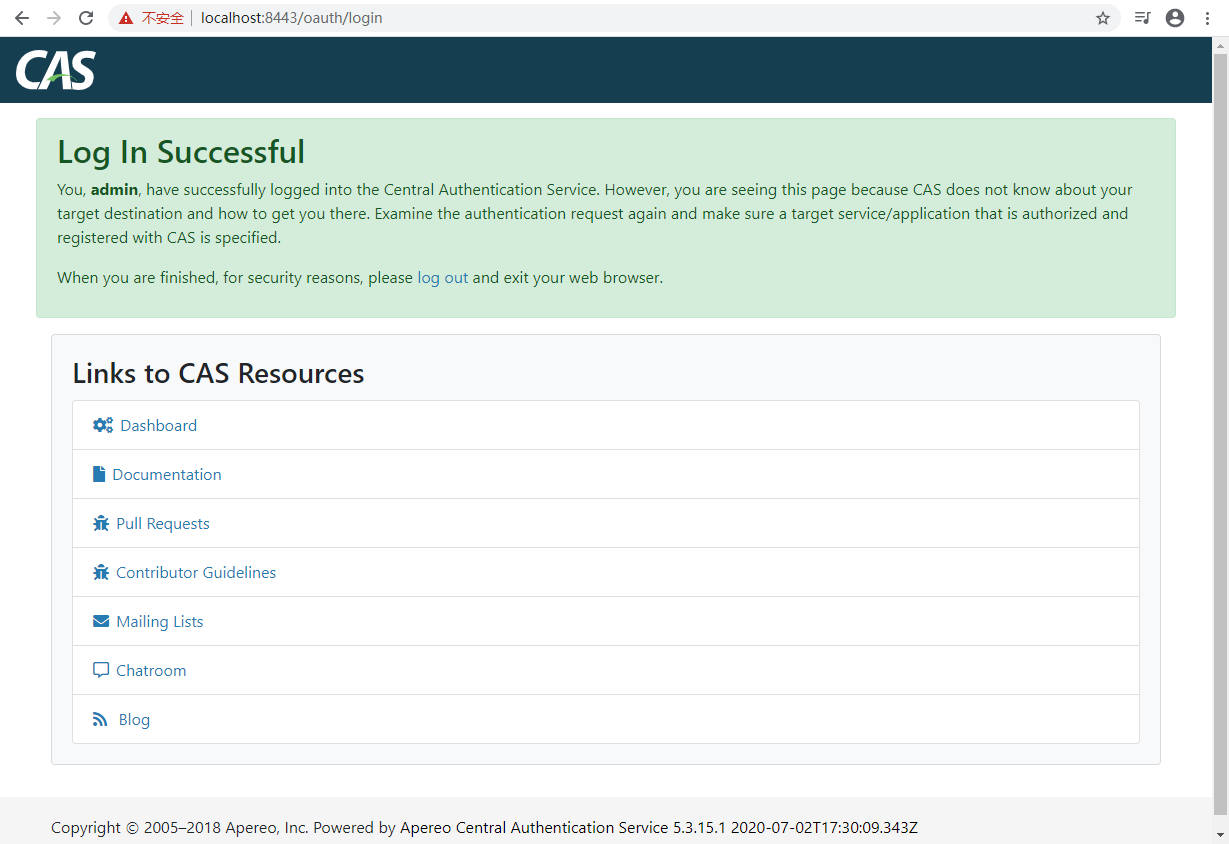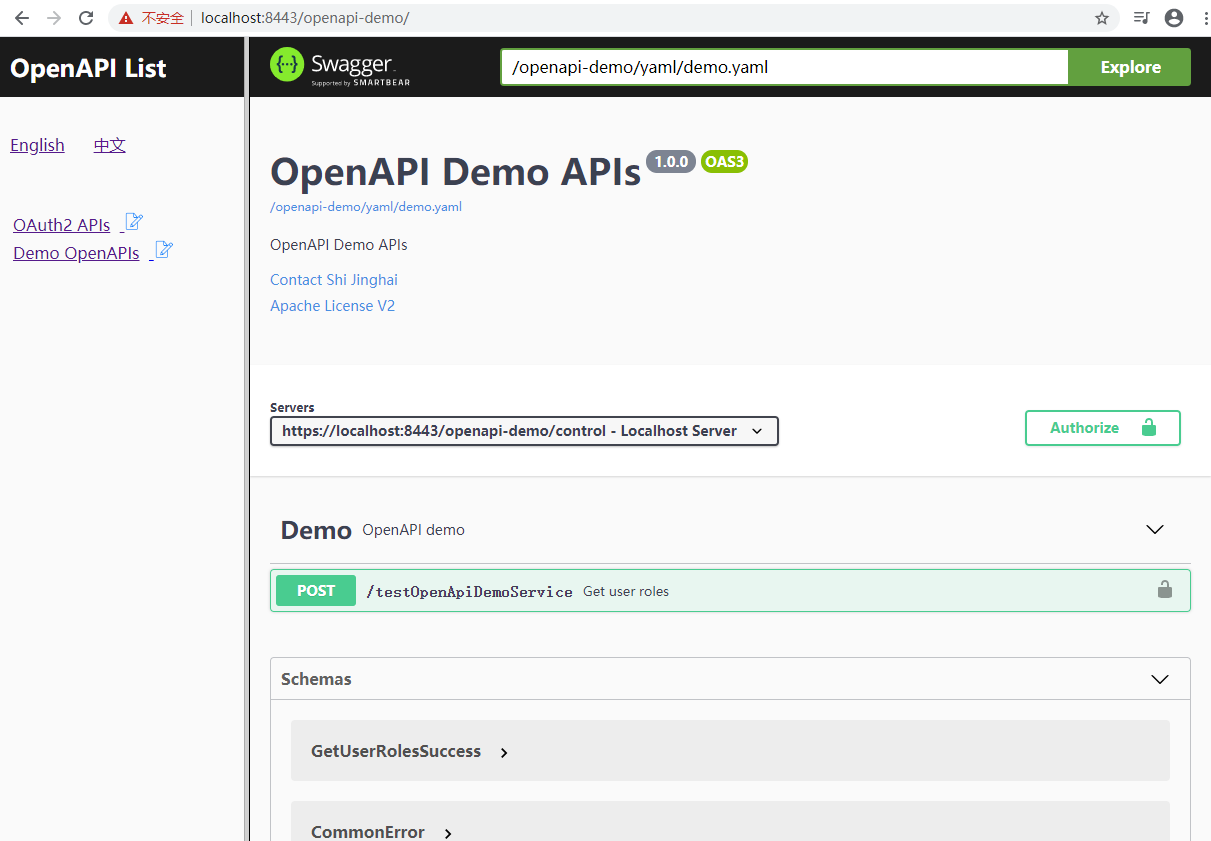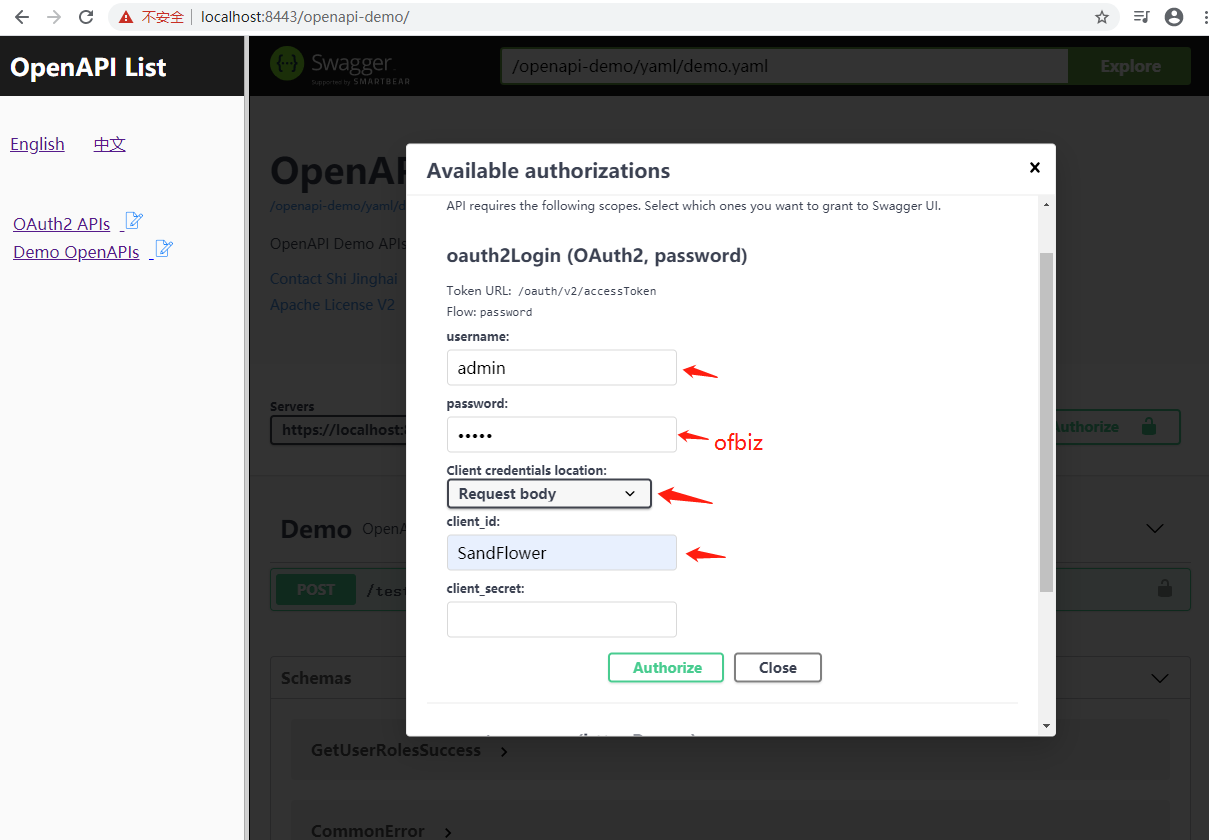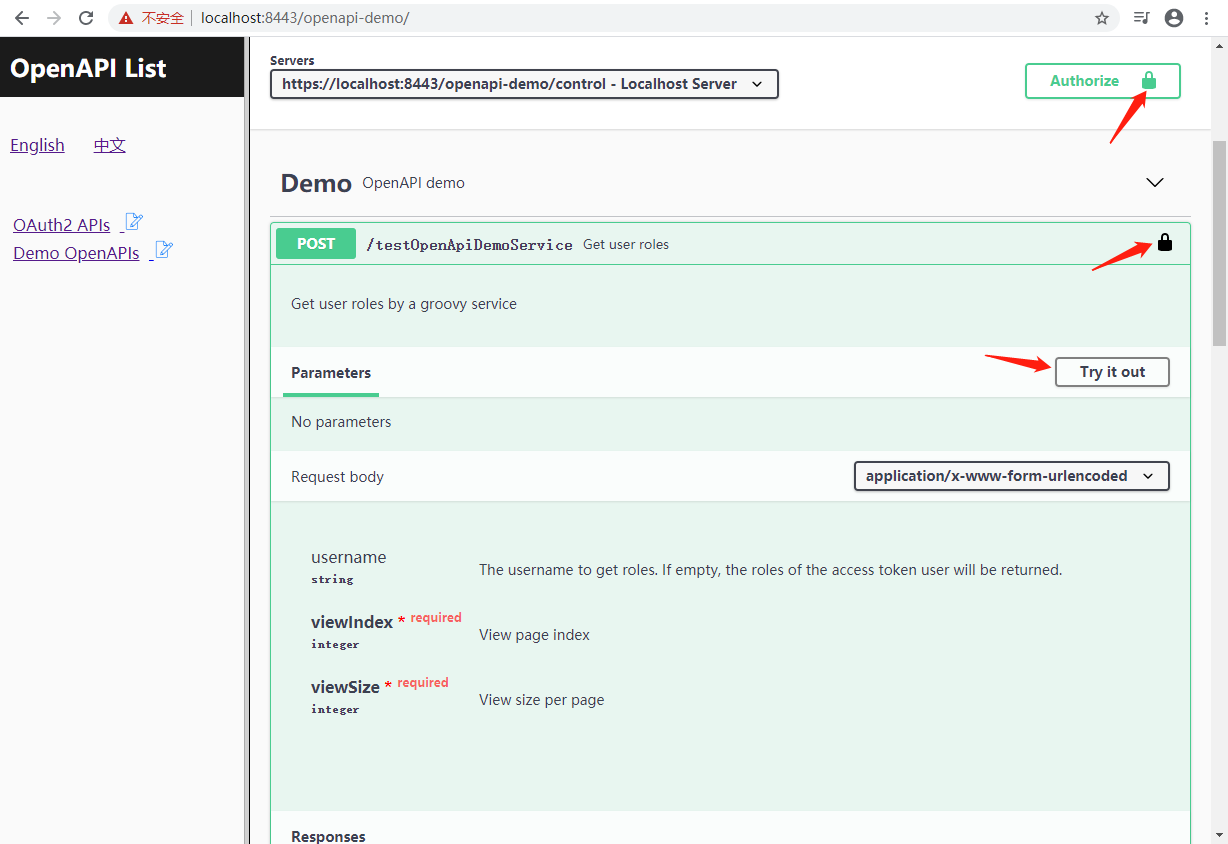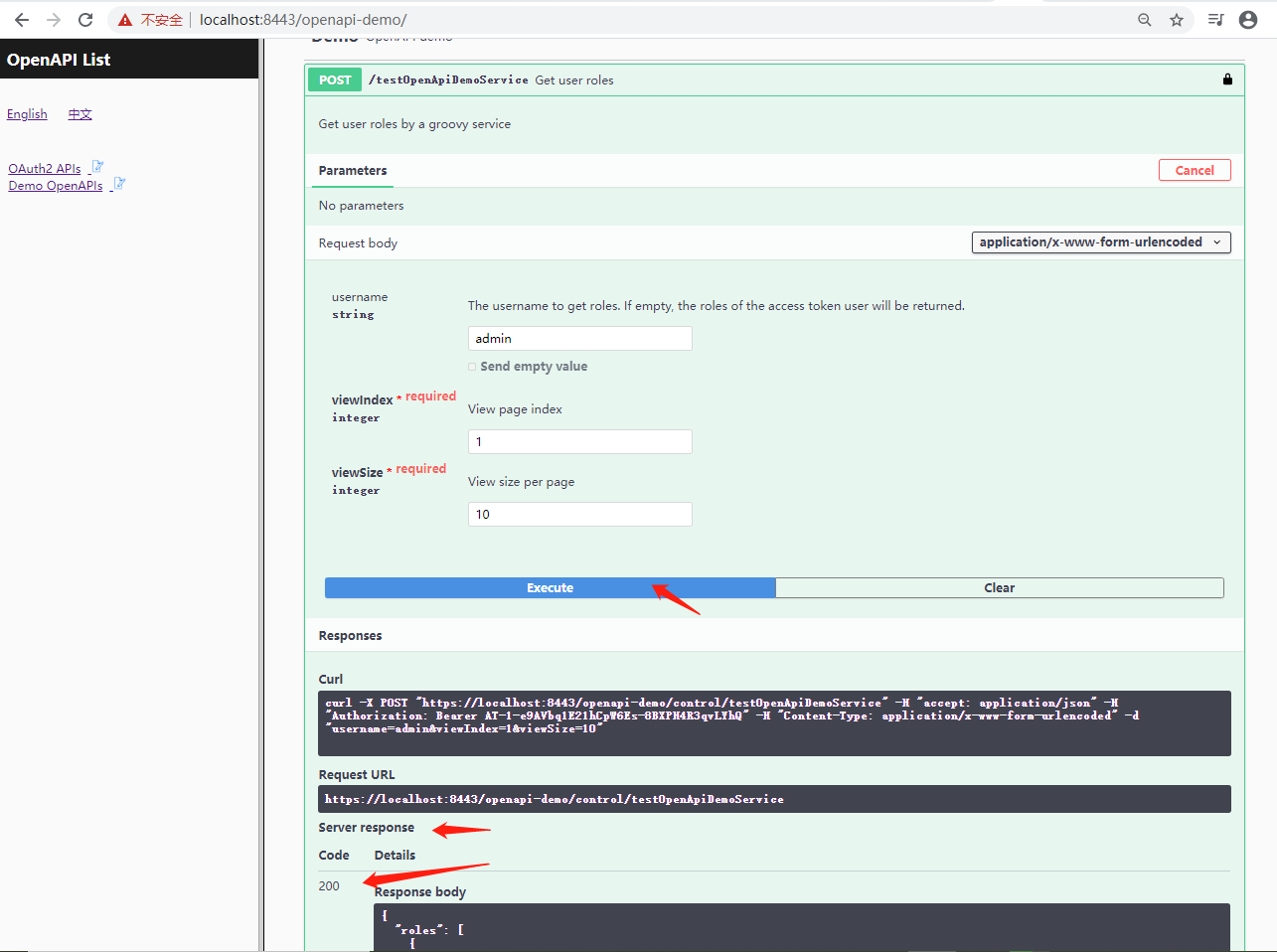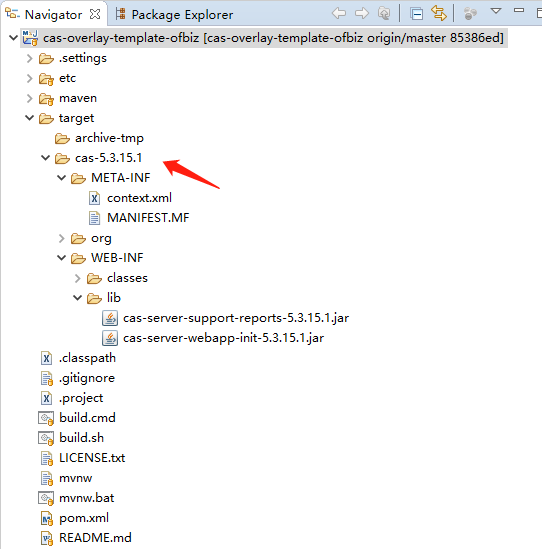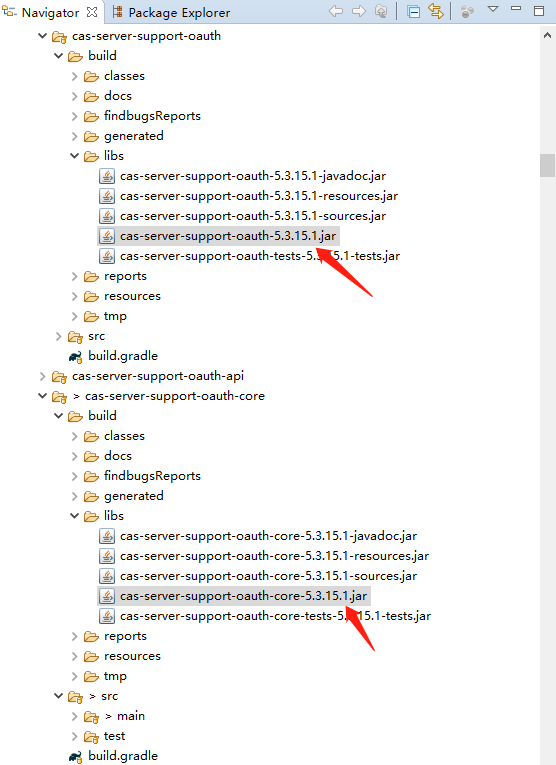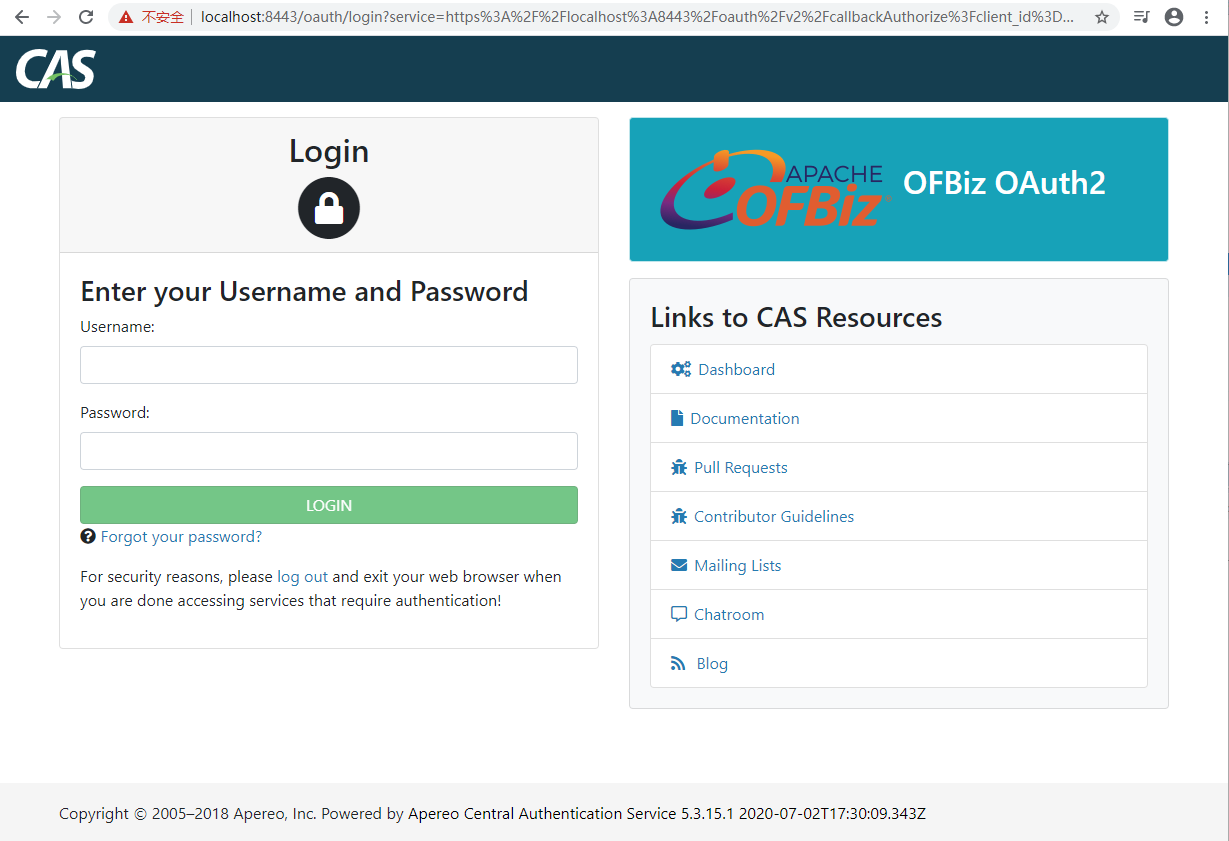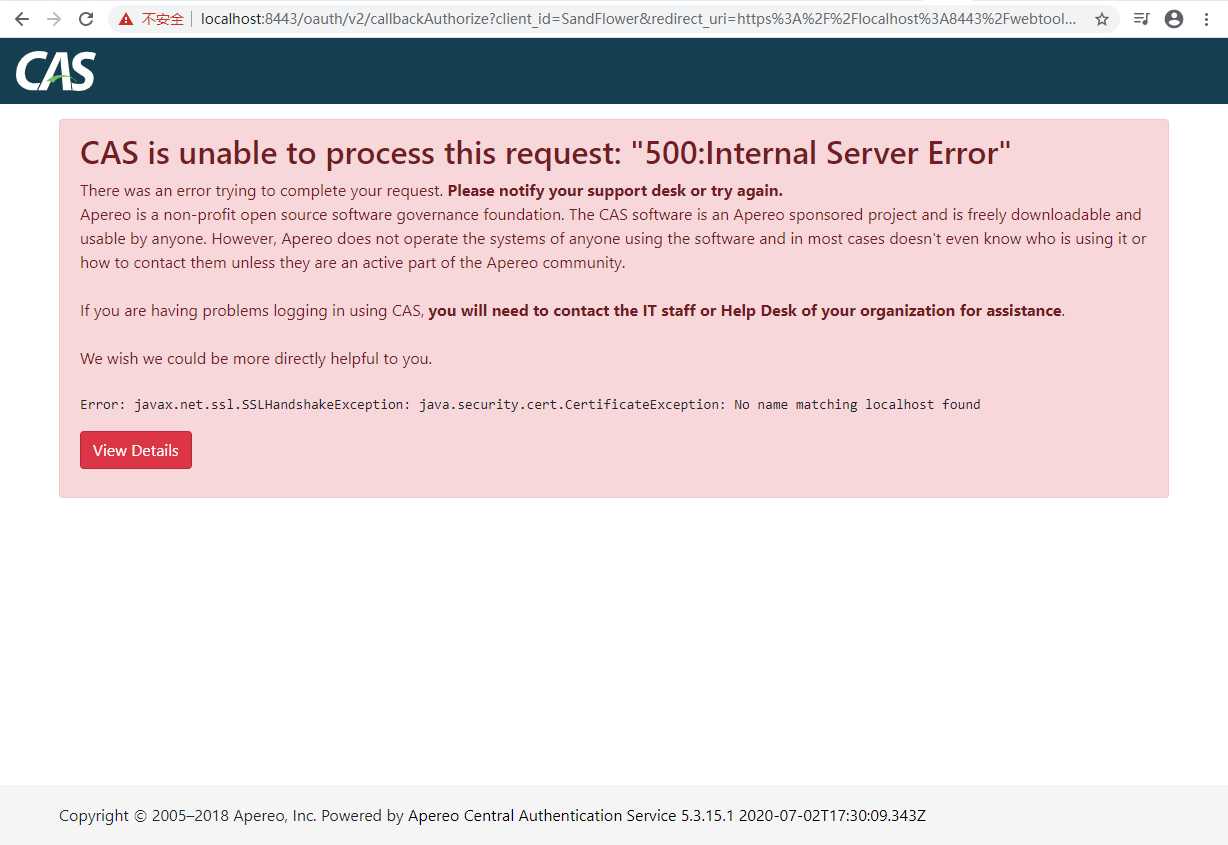Welcome any kind of contributions to this plugin.
This plugin is for OFBiz 17.12.03 with JDK 1.8.x, Tomcat 9.0.31 and CAS 5.3.15.1.
1. Checkout OFBiz 17.12.03 from https://github.com/apache/ofbiz-framework
2. Download this plugin
3. Deploy this plugin in plugins/cas/
4. Apply patches under patches/ofbiz to OFBiz
5. Edit gradle/wrapper/gradle-wrapper.properties, change to use gradle 5.0:
distributionUrl=https\://services.gradle.org/distributions/gradle-5.0-bin.zip
6. Install OFBiz seed data by command:
gradlew loadAll
7. Config CAS:
Deploy the demo configuration file to runtime/cas/services folder.
The content of LocalhostHttps-10000002.json is here:
{
"@class" : "org.apereo.cas.support.oauth.services.OAuthRegisteredService",
"clientId": "SandFlower",
"clientSecret": "sandflower",
"bypassApprovalPrompt": true,
"serviceId" : "^https://localhost:8443/.*",
"name" : "OFBiz OAuth2",
"id" : 10000002,
"logo": "https://ofbiz.apache.org/images/ofbiz_logo.png",
"evaluationOrder": 10,
"jsonFormat": true,
"supportedGrantTypes": [ "java.util.HashSet", [ "AUTHORIZATION_CODE", "PASSWORD",
"CLIENT_CREDENTIALS", "REFRESH_TOKEN" ] ],
"generateRefreshToken": true,
"attributeReleasePolicy" : {
"@class" : "org.apereo.cas.services.ReturnAllowedAttributeReleasePolicy",
"allowedAttributes" : [ "java.util.ArrayList",
[ "userLoginId", "partyId", "groupName", "firstName", "lastName", "currentPassword" ]
],
"principalAttributesRepository" : {
"@class" : "org.apereo.cas.authentication.principal.DefaultPrincipalAttributesRepository"
},
"authorizedToReleaseCredentialPassword" : false,
"authorizedToReleaseProxyGrantingTicket" : false
},
"accessStrategy" : {
"@class" : "org.apereo.cas.services.DefaultRegisteredServiceAccessStrategy",
"enabled" : true,
"ssoEnabled" : true,
"requireAllAttributes" : false
}
}8. Start OFBiz by command:
gradlew ofbiz
9. CAS native login test:
In browser, visit https://localhost:8443/oauth/login
Username: admin
Password: ofbiz
After login successfully, you can see this page:
10. OAuth2 Grant Tests:
The OAuth2 grant supported as described in [https://apereo.github.io/cas/5.3.x/installation/OAuth-OpenId-Authentication.html](CAS document).
As you see, there are 4 grant types of OAuth2: Client Credentials Grant, Password Grant, Authorization Code Grant and Implicit Grant. Let's test them one by one.
10.1. Client Credentials Grant: /oauth/v2/accessToken
This is one step authorization.
Url example:
https://localhost:8443/oauth/v2/accessToken?grant_type=client_credentials&client_id=SandFlower&client_secret=sandflower
10.2 Password Grant: /oauth/v2/accessToken
This is one step authorization.
Url example:
https://localhost:8443/oauth/v2/accessToken?grant_type=password&client_id=SandFlower&username=admin&password=ofbiz
10.3 Authorization Code Grant
This 2 steps authorization.
The 1st step: authorize and get code from the redirected url.
Url example:
https://localhost:8443/oauth/v2/authorize?response_type=code&client_id=SandFlower&redirect_uri=https://localhost:8443/webtools/control/ping
The redirected url is:
The 2nd step: get access_token
Replace CODE in the following url from the 1st step redirected url and request the following url in browser.
Url example:
https://localhost:8443/oauth/v2/accessToken?grant_type=authorization_code&client_id=SandFlower&client_secret=sandflower&redirect_uri=https://localhost:8443/webtools/control/ping&code=CODE
10.4 Implicit Grant: /oauth/v2/authorize
Url example:
https://localhost:8443/oauth/v2/authorize?response_type=token&client_id=SandFlower&redirect_uri=https://localhost:8443/webtools/control/ping
The redirected url look like:
11. OAuth2 Refresh Token Grant Test: /oauth/v2/accessToken
You can always use refresh token to get a new access token.
Url example:
https://localhost:8443/oauth/v2/accessToken?grant_type=refresh_token&client_id=SandFlower&client_secret=sandflower&refresh_token=REFRESH_TOKEN
In 10.2 Password Grant, you get a refresh token, replace the REFRESH_TOKEN with it in the above url, visit the url in web browser, you'll get a new access token.
12. OAuth2 profile test: /oauth/v2/profile
The user profile can be fetched by the access token, i.e. in 10.2 Password Grant, you get an access token, replace ACCESS_TOKEN in the following url with the access token and visit it in a web browser.
Url example:
https://localhost:8443/oauth/v2/profile?access_token=ACCESS_TOKEN
The user profile in web browser:
13. OpenAPI Demo: /openapi-demo/
There is an openapi-demo webapp to show how to use this plugin in openapi.
13.1 Visit https://localhost:8443/openapi-demo/, click "Demo OpenAPIs" in the left frame:
13.2 Click "Authorize" button, input username, password and client id:
13.3 Click "Authorize" button to store oauth2 parameters:
13.4 Click "Try it out" button and then "Execute" button, check the response from the demo
1. How to build webapp/cas-5.3.15.1 for this plugin
1.1 Check out cas-overlay-template-ofbiz, select ofbiz-17.12.03-cas-5.3.15.1 tag.
1.2 Run 'mvn clean package' to build target/cas-5.3.15.1, it's the webapp/cas-5.3.15.1 in this plugin.
2. Why apply patches/ofbiz/startup-with-webapp-context.xml.patch
As you see, when deploying Apereo CAS in tomcat, the META-INF/context.xml is applied. In OFBiz 17.12.03, it's not. With patches/ofbiz/startup-with-webapp-context.xml.patch, META-INF/context.xml is configured, and then spring-boot and relative jars can be scanned and loaded as expected.
StandardContext context = new StandardContext();
+ String location = getWebappRootLocation(appInfo);
+
+ String contextXmlFilePath = new StringBuilder().append("file:///").append(location).append("/").append(Constants.ApplicationContextXml).toString();
+ URL contextXmlUrl = null;
+ try {
+ contextXmlUrl = FlexibleLocation.resolveLocation(contextXmlFilePath);
+ contextXmlFilePath = new StringBuilder().append(location).append("/").append(Constants.ApplicationContextXml).toString();
+ File contextXmlFile = FileUtil.getFile(contextXmlFilePath);
+ if(contextXmlFile.exists() && contextXmlFile.isFile()) {
+ Debug.logInfo(contextXmlFilePath + " found and will be loaded.", module);
+ context.setConfigFile(contextXmlUrl);
+ } else {
+ // Debug.logInfo(contextXmlFilePath + " not found or not a file.", module);
+ }
+ } catch (MalformedURLException e) {
+ Debug.logInfo(contextXmlFilePath+ " not found.", module);
+ }
+
Tomcat.initWebappDefaults(context);
- String location = getWebappRootLocation(appInfo);context.setConfigFile(contextXmlUrl) is the core line.
3. Why apply patches/ofbiz/build.gradle.patch
In this patch, rootProject.jvmArguments is exposed to submodule's build.gradle to extend or change them:
-List jvmArguments = ['-Xms128M', '-Xmx1024M']
+ext.jvmArguments = ['-Xms128M', '-Xmx1024M']and then in the build.gradle of OFBiz-CAS plugin, the rootProject.jvmArguments are extended:
rootProject.jvmArguments.each { jvmArg ->
if (jvmArg && jvmArg.startsWith("-Dlog4j.configurationFile=")) {
originalLog4jConfig = jvmArg
if (!jvmArg.endsWith("=")) {
jvmArg += ","
}
log4jConfig = jvmArg + "log4j2-cas.xml"
findLogArg = true
return true
}
}
if (!findLogArg) {
rootProject.jvmArguments.add('-Dlog4j.configurationFile=log4j2.xml,log4j2-cas.xml')
} else {
rootProject.jvmArguments.remove(originalLog4jConfig)
rootProject.jvmArguments.add(log4jConfig)
}
...
rootProject.jvmArguments.add('-Dcas.standalone.configurationDirectory=plugins/cas/config')
...4. Why apply patches/cas/cas-server-support-oauth-core-5.3.15.1.patch
This patch is for cas-server-support-oauth-core.
The code changes "/oauth2.0" to "/v2":
public interface OAuth20Constants {
...
- String BASE_OAUTH20_URL = "/oauth2.0";
+ String BASE_OAUTH20_URL = "/v2";
...
}This is a sample if you want to change the default /oauth2.0 uri style.
Run 'mvn clean package' in support/cas-server-support-oauth-core, and then copy support/cas-server-support-oauth-core/build/libs/cas-server-support-oauth-core-5.3.15.1.jar and support/cas-server-support-oauth/build/libs/cas-server-support-oauth-5.3.15.1.jar to this plugin's lib folder.
The reason why cas-server-support-oauth-5.3.15.1.jar is required, is that Java sets all BASE_OAUTH20_URL to '/oauth2.0' during compiling, and there are several usages of BASE_OAUTH20_URL in cas-server-support-oauth.
If you don't want to change "/oauth2.0", remove these 2 jars.
5. Why apply patches/java-cas-client/cas-client-core-3.5.1.patch
This patch is for cas-client-core to resolve ssl error in localhost environment. By default, test cases in 10.3 and 10.4 will be failed:
After input username admin, password ofbiz, an error page shown:
Thanks for reading this document.
--- END ---
